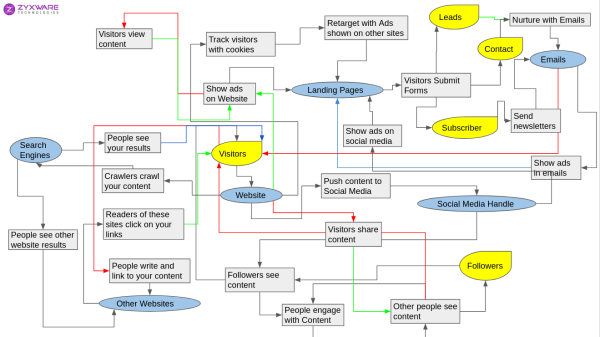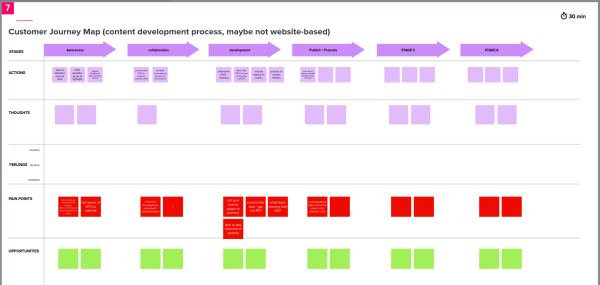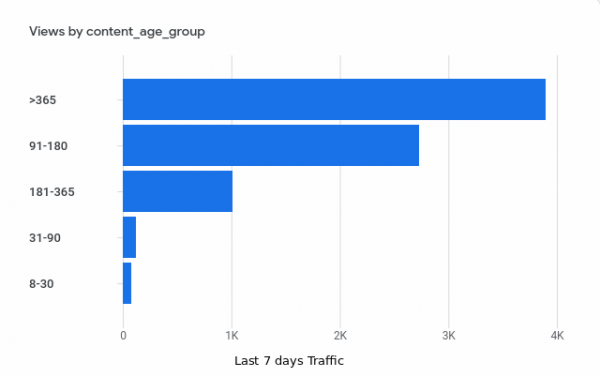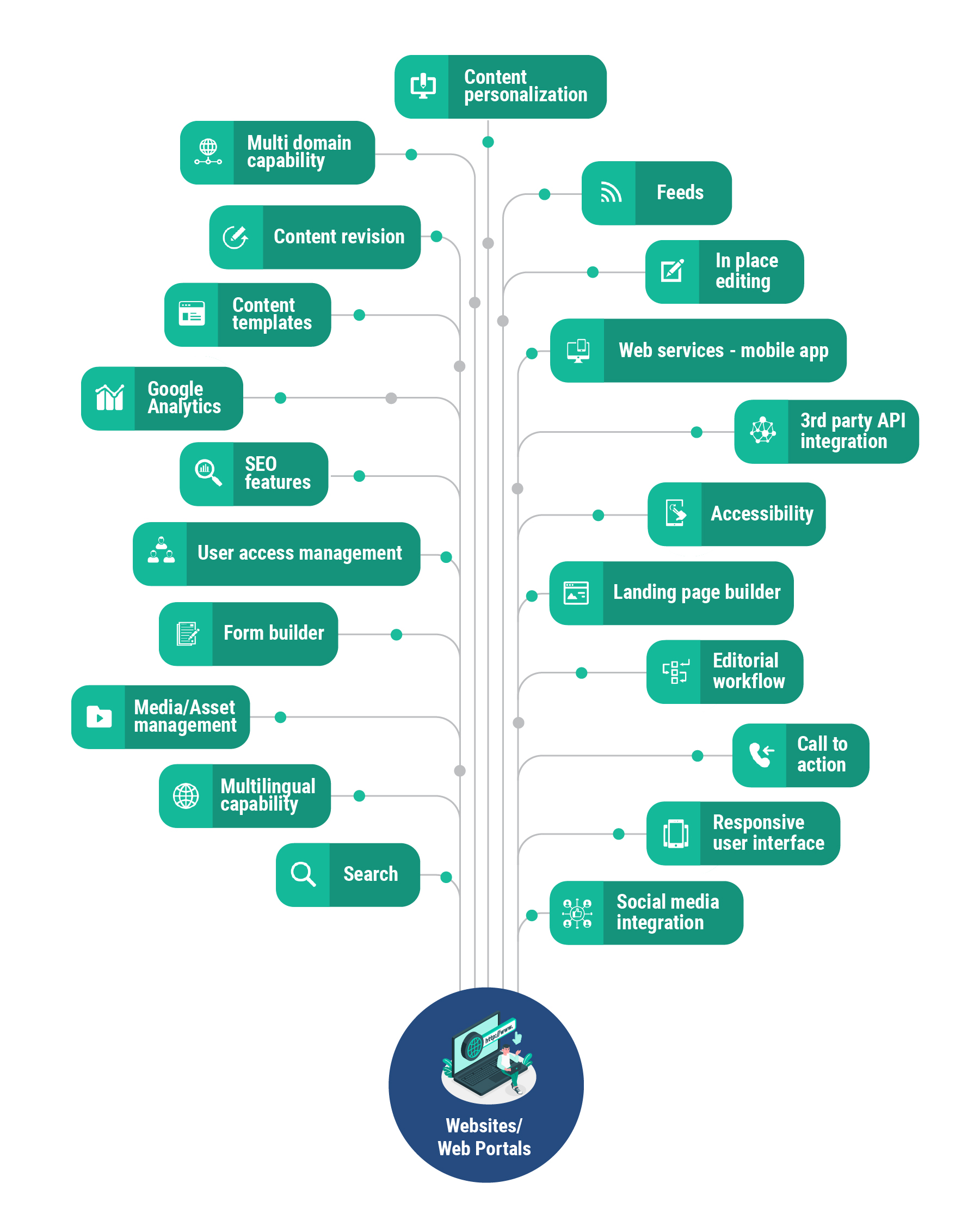CMS vs. DXP: Choosing the Right Engine for Your Website's Growth, and Why Drupal Might Be the Answer

In the early days of the internet, Content Management Systems (CMSs) primarily focused on straightforward tasks such as uploading and formatting content for webpages. However, as the digital landscape evolved, so did these systems. From basic CMS to Web Experience Management (WEM) systems, and now to Digital Experience Platforms (DXPs)1 , there has been a significant expansion in functionality. Websites have evolved from mere repositories of information into dynamic platforms for storytelling and customer engagement. This transformation has given rise to Digital Experience Platforms (DXPs), which are designed to meet the complex and diverse needs of modern digital audiences.
Shift Toward DXPs

The shift towards Digital Experience Platforms (DXPs) represents a natural progression in response to changing market needs and technological advancements. From managing content to delivering holistic digital experiences, DXPs signify a new era in digital engagement where interactivity, personalization, and user experience take center stage.
Empowered Customers
Modern customers expect highly personalized experiences, and DXPs cater to this by using tools for personalization and data-driven insights. Personalization is increasingly becoming a core driver in marketing, moving beyond simple marketing strategies to becoming integral in understanding and catering to high-value customers.
A successful personalization strategy requires investment in customer data and analytics, leveraging technologies to analyze behavioral patterns, and utilizing customer-data platforms (CDPs) for real-time campaign execution across touchpoints and channels. Personalization in marketing can drive significant revenue growth and customer loyalty, with businesses often experiencing a 10 to 15 percent lift in revenue due to effective personalization strategies. Personalization is not just a marketing tool it is part of the operation, especially for digitally native companies2
Global Expansion
DXPs support businesses in reaching a global audience by providing multilingual capabilities and multi-site management. This is vital for businesses aiming to maintain and manage multi-country websites, allowing for content to be tailored for different languages and cultural contexts. The ability to manage multiple sites from a central platform simplifies the management of global digital footprints
Technological Convergence
The integration of advanced technologies like Machine Learning and IoT into DXPs allows for a more adaptable and flexible digital strategy. These technologies enable DXPs to adapt to user behaviors and preferences, providing more personalized and engaging experiences. This technological convergence is essential for creating seamless experiences for consumers as more devices become interconnected and part of the consumer ecosystem. Industries such as banking, healthcare, and retail are increasingly forming ecosystems comprising various businesses to improve customer service and offer a broader array of solutions
Data-Driven Strategies
Real-time data is essential for making informed decisions. Digital Experience Platforms (DXPs) offer robust analytics and insights, enabling businesses to design more relevant experiences. The key lies in developing systems capable of analyzing both structured and unstructured data, identifying behavioral patterns, and channeling this information into user-friendly dashboards. This approach facilitates more effective campaign execution and deepens the understanding of customer behavior.
Open and headless systems in DXPs have revolutionized data-driven strategies. These systems enable the seamless integration of diverse data sources, thus allowing for dynamic content personalization and agile marketing campaign execution. For instance, a retailer integrating data from its eCommerce platform, CRM, and customer feedback tools into a headless DXP gains a comprehensive view of customer interactions. This integration enables the retailer to provide a best-in-class personalized experience to each visitor
Evolving Customer Journey

DXPs plays an important role in bridging the gap between various channels, offering consistent experiences across different devices and touchpoints. This holistic approach is essential in today's market, where the customer journey is increasingly multi-faceted and traverses various digital mediums. A well-executed DXP strategy ensures a seamless connection of personalized content across these different channels, enhancing the overall customer experience
Types of Digital Experience Platforms (DXPs)
DXPs come in two primary forms: suite-based and integration-focused platforms3 , each catering to different organizational needs.
Suite-Based DXPs
Suite-based DXPs are comprehensive, all-in-one solutions from a single vendor, featuring a wide range of integrated tools such as content management, digital marketing, data analytics, and customer relationship management. This approach provides a seamless, unified system with reduced compatibility issues, ideal for businesses seeking simplicity and a cohesive toolset.
Composable or Open DXPs
Integration-focused DXPs, also known as open or composable platforms, are designed for flexibility. They excel in integrating with various external tools and systems, allowing businesses to customize their digital experience stack by selecting specialized tools for each function. This modular approach is particularly beneficial for organizations that have existing investments in certain technologies or require specific functionalities that are not available in a single suite.
When considering a DXP, businesses must evaluate these types to determine which aligns best with their strategic goals, technological infrastructure, and the level of customization required for their global content strategy.
CMS vs. DXP: Choosing the Right Tool
The choice between a CMS and a DXP depends on specific needs and goals
- Choose a CMS if your website serves primarily as an informational platform, you have limited resources, and advanced personalization or analytics are not a priority.
- Opt for a DXP if you aim to deliver personalized experiences, have a complex global audience, embrace technological advancements, and prioritize data-driven insights and a seamless customer journey.
Drupal as a Versatile Solution
Drupal is renowned for its modularity and flexibility in content modeling, making it an ideal choice for leveraging DXP capabilities, particularly in open or composable digital experience platforms. Its architecture allows for seamless integration with a variety of external tools and systems, enabling businesses to customize their digital experience stack. This composability feature of Drupal aligns well with the flexible and adaptable nature of open DXPs, further enhancing its suitability for creating tailored and dynamic digital experiences.
Personalization
Drupal enables the creation of personalized user experiences, catering to individual preferences and behaviors. Its advanced content modeling and taxonomy system facilitate easy connection with Customer Data Platforms like Unomi, enhancing personalization based on individual data.
We have developed a website personalization engine capable of delivering messages based on user behavior. Examples include progressive user experiences based on visitor persona, geo-specific personalization, referral-driven user journey, dynamic messages for repeat visitors, aligning website content with email campaigns, and connecting online ad campaigns with website content. Demos for each of these use cases have been set up.
Global Content Strategy
Drupal's multilingual and multisite management capabilities make it an excellent choice for businesses aiming for a global reach. Multilanguage features, integral to Drupal core, simplify maintaining multilingual, multicountry websites. Additionally, the Drupal interface can be translated entirely into your chosen language.
The multi-site option is particularly beneficial for corporations managing separate websites for each country while centralizing feature management. For instance, we implemented multisite websites for the government of Bhutan, enabling them to create 24+ independent websites on the same platform.
For DITT Bhutan, we used an Aegir-based solution to host all websites in their central data center. For the state of Arizona, a distribution was created to serve over 180 agency websites, using Pantheon upstream for flexible deployment and customization.
Technological Flexibility
Drupal's architecture supports seamless integration with various technologies, including IoT and machine learning. The OpenAI integration enhances Drupal with capabilities such as audio interaction (speech to text), ChatGPT API interaction for conversational responses, CKEditor 5 integration for text generation, content editing tools for tone adjustment and summarization, image generation with DALL·E, custom workflow creation, realistic content generation, log analysis and error solution, admin prompt interaction, text embedding and vector analysis, and text to speech interaction.
Data-Driven Decision Making

Drupal allows organizations to use robust analytics to inform their content strategies and user experience designs. Integrating systems like Google Analytics enables tracking of user behavior data points, essential for implementing A/B testing for specific CTAs and user journeys. Tracking the age group of content generates valuable data and insights for content marketers.
Unified Customer Journey
Drupal excels at creating a cohesive experience across various digital channels, aligning with the customer's journey. Its API-first approach allows other systems to pull content from Drupal for display in systems like POS and digital kiosks. The personalization engine enables connection between email campaigns or advertisements and website content, providing a seamless user journey from email or advertisement to the website.
Deciding on Drupal: CMS vs. DXP
When deciding whether to use Drupal as a CMS or a DXP, consider your business needs and digital strategy goals
Drupal As a CMS

If your website functions primarily as an informational hub and you require a robust, yet budget-friendly solution with potential for scalability, choose Drupal for robust and scalable content management capabilities.
Drupal As a DXP
If your focus is on delivering personalized experiences, managing complex global operations, and embracing cutting-edge technologies for a diverse audience, select Drupal for its capability content modeling, APIs, and integrating with marketing automation and personalization tools.
Drupal: Compare as a CMS or DXP
Drupal is an open, composable platform that serves as an ideal central component for building your DXP. While Drupal alone is not sufficient for a complete DXP, it should be considered alongside personalization engines, marketing automation systems, CRMs, customer data platforms, asset management systems, machine learning, generative AI models, and many other platforms. Here is an overview of the capabilities possible when Drupal is used as a CMS versus when it is utilized as a DXP
| Feature | Drupal as a CMS | Drupal as a DXP |
|---|---|---|
| Primary Function | Focused on content creation, management, and publishing, with robust content organization capabilities. | Extends to comprehensive digital experience management, including advanced content strategy and digital asset management. |
| Personalization | Offers content and taxonomy-based personalization capabilities, suitable for straightforward content delivery. | Advanced personalization using customer data and behavior analysis, supported by integrations with AI and analytics tools. |
| Integration | Supports basic integration with external tools and applications, leveraging Drupal modules. | Robust integration with external systems, APIs, and microservices, facilitated by Drupal’s API-first approach. |
| Data Handling | Manages structured content; capable of handling unstructured data but with limited capabilities. | Handles both structured and unstructured data, e.g., automatically categorizing or summarizing content with Generative AI. |
| Multichannel Support | Primarily web-focused and responsive; can be extended for basic multichannel content distribution. | Native multichannel support, including web, mobile, IoT, etc., ensuring a consistent experience across various digital touchpoints using an API-first approach. |
| User Experience | Focuses on delivering well-structured content, with user experience depending largely on site design. | Provides a holistic user experience, integrating content, personalization, and user interactions across all digital channels. |
| Global Capabilities | Supports multilingual content and basic multi-site management. | Enhanced global scalability with advanced multilingual and multi-site management features for a broader global reach. |
| Technological Flexibility | Although Drupal comes with a framework enabling users to create custom functionalities, as a CMS it mostly leverages site-building capabilities and a vast array of contributed modules to extend its capabilities. | Highly adaptable to emerging technologies and digital trends, supported by Drupal’s flexible architecture and modular system. |
| Target Use-Case | Ideal for content-centric websites and web portals, focusing on information delivery. | Suited for comprehensive digital experience management, perfect for businesses seeking personalized, integrated digital ecosystems for demand generation and lead generation. |
Key Considerations in Choosing a CMS or DXP
As a business owner, you also need to consider your organization's long-term marketing and communication strategy before making a decision.
Here are some of the key elements to consider for that:
- Business Needs and Goals: Align your choice with your organization's objectives and digital strategy.
- Customer Experience Focus: Ensure the system supports the creation of personalized, customer-centric experiences.
- Data Management and Analytics: Choose a system offering robust data analysis for insights and personalization.
- Flexibility and Scalability: Ensure the platform is adaptable to technological advancements and market changes.
Since Drupal can act as both CMS and DXP, you can start small by implementing your website with Drupal and then incrementally progress it towards the DXP route.
Conclusion
Drupal offers a flexible and feature-rich platform suitable for both CMS and DXP needs. It allows businesses to start small and scale quickly, adapting to the digital transformation journey. As digital strategies evolve, Drupal provides the necessary tools to navigate and succeed in the dynamic digital landscape.
If you're interested in learning more about how we're leveraging Drupal to implement a personalization-enabled, lead-generating corporate website, please contact us. Our digital consultant will be happy to schedule a call with you to demonstrate the details.



